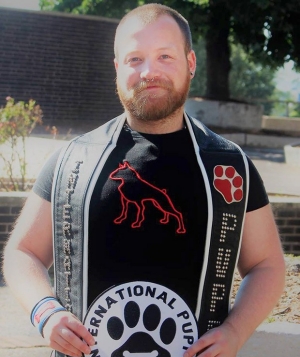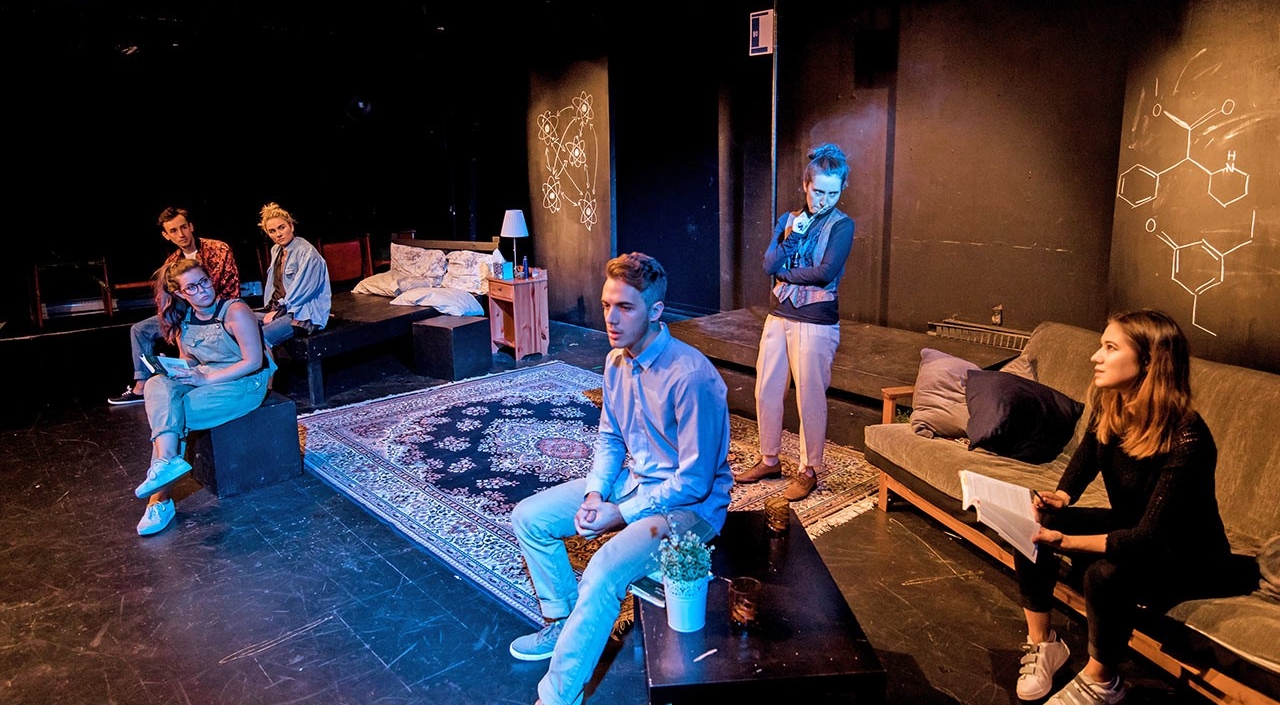Inspired in part by the French philosopher Michel Foucault’s three volume series of the same name, The History of Sexuality centres around the discussions of five students taking a graduate-studies seminar on Foucault’s work.
Over the course of the semester, the students’ discussions about sexuality, gender and power boil over into their personal lives, exposing their own struggles with issues such as kink, bondage, discipline, sadism and masochism, disability, gender and sex work.
“It’s important to acknowledge that gay people have different experiences,” says Stewart. “For me, it’s never about this universalized ‘we’re all humans’ discourse. It’s about recognizing that we’re all different, celebrating that, and then moving forward with our differences, together.”
Stewart wrote the play using a technique he calls Fictionalized Verbatim Theatre. By hosting a series of interviews and focus groups with LGBTQ (lesbian, gay, bisexual, transgender, queer) people around queer themes, Stewart recorded the conversations and then used the transcripts for his dialogue.
While verbatim theatre is quite common — two popular examples being The Vagina Monologues and The Laramie Project — Stewart’s method uses a more liberal editing approach.
“I wanted to acknowledge the power the playwright has by flipping the process on its head and taking the real words that people spoke in these interviews and focus groups,” says Stewart. “But I’m splicing them into fictional characters. So I got to have complete control over the narrative that I wanted to construct.”
The result is highly realistic dialogue that preserves the real-life experiences of the original speakers.
INDI flexibility
Stewart praises Concordia’s Individualized Program (INDI) for giving him the creative space and flexibility to produce The History of Sexuality.
“It’s something that Concordia does incredibly well, in my opinion,” he says. “Especially the communications and media studies graduate programs — they’re exceptional at producing creative works.”
 Stewart is also an educator and public advocate for alternative sexual practices and lifestyles, including human pup play.
Stewart is also an educator and public advocate for alternative sexual practices and lifestyles, including human pup play.
 The History of Sexuality unfolds around graduate students taking a seminar on Michel Foucault. | Photo: Peter Ryaux-Larsen
The History of Sexuality unfolds around graduate students taking a seminar on Michel Foucault. | Photo: Peter Ryaux-Larsen